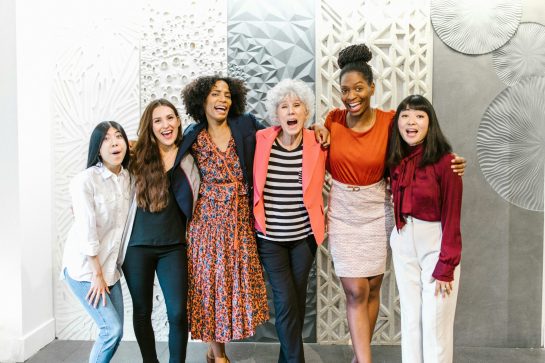International Women’s Day is an opportunity to reflect on and celebrate the contributions of women in every field and walk of life. This year’s theme of the importance of inclusion has particular relevance for social services and case management. This article highlights contributions of a few organizations that have partnered with Eccovia, and the women who lead their care coordination efforts.
At Eccovia, we’re privileged to work with amazing organizations that serve the most vulnerable in their communities, such as those experiencing or at risk of homelessness, refugees, LGBTQ+ youth, and many more. Across these organizations, women serve in every capacity, from decision-makers at the highest level to case workers interacting with and serving clients directly.
Over the course of our years of working together, we’ve had opportunities to sit down with some of these amazing women and talk about their organizations and they work they’re doing. Today, we want to shine the spotlight on them so you can have a chance to see what they have accomplished, for yourself!
Metropolitan Alliance of Connected Communities
The Metropolitan Alliance of Connected Communities (MACC) is a nonprofit network of nearly 60 human service organizations in the Twin Cities metropolitan area of Minnesota. MACC provides quality, affordable, shared administrative services, and connects their members to resources, knowledge, and capacity building so they can navigate typical challenges faced by human service organizations. Members represent a rich and diverse spectrum of human services, including food shelves, housing organizations, youth organizations, and much more.
Spotlight: Alicia Ranney, Vice President of Evaluation and Services
Read More
Physicians CareConnection
Physicians CareConnection (PCC) serves the greater Columbus, Ohio, metropolitan area, helping vulnerable and marginalized people achieve their optimal health by working holistically with physicians who volunteer in their network to provide medical and other services to families that struggle to improve their social determinants of health.
Spotlight: Isi Ikharebha Green, President
Read More
Women Against Abuse
Women Against Abuse (WAA) is the largest domestic violence service provider in Pennsylvania, operating the city of Philadelphia’s only two dedicated domestic violence shelters. WAA runs an additional 15 units of transitional housing for survivors to live with their families, and offers their services to survivors of all genders, moving beyond older notions of domestic violence as an exclusively women’s issue. WAA was a pioneer in having a legal center for domestic violence survivors, and additionally provides a range of community-based case management services to provide longer-term help.
Spotlight: Alexis Harris, Data and Reporting Manager
Read More
And this, of course, doesn’t even begin to scratch the surface. Take a moment to read these case studies and check out the campaign theme for International Women’s Day to find ways to help support and celebrate women!



